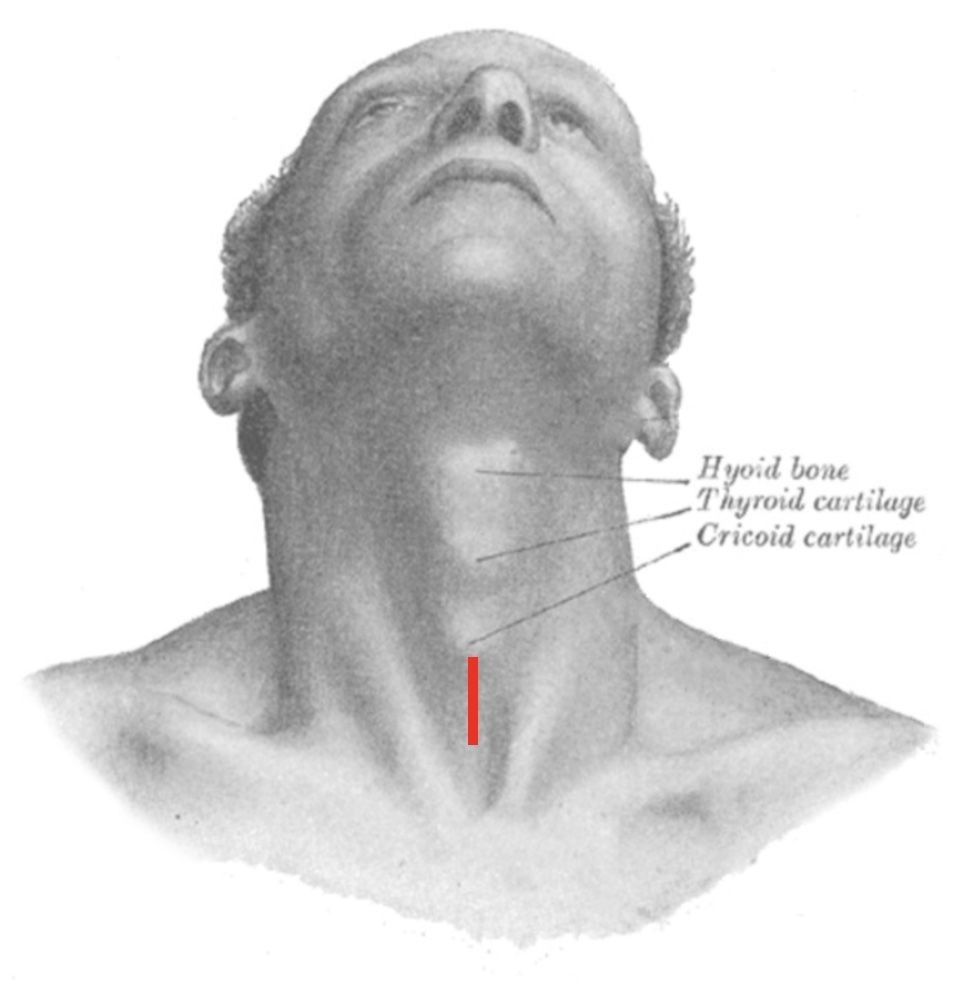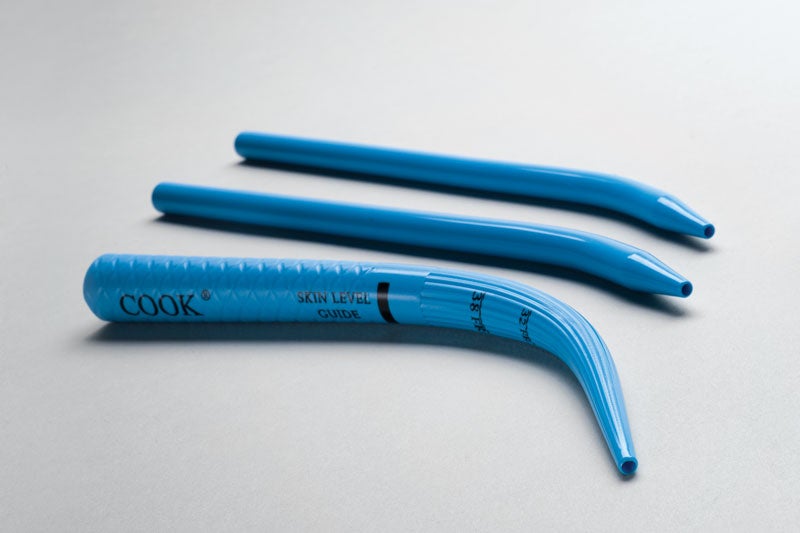Percutaneous Tracheostomy (Technique)
Percutaneous Tracheostomy (Technique)
David Ray Velez, MD
Also Known as “Perc Trach”, “Percutaneous Dilational Tracheostomy”, “PDT”, or “Modified Ciaglia Technique”
Positioning
- Supine
- Arms Tucked
- Neck Extended with a Shoulder Roll Under the Shoulders (May Be Unable if in a Cervical Collar, etc.)
Identify Anatomy
- Identify the Sternal Notch, Thyroid Cartilage, Cricoid Cartilage, and Trachea
- Goal Location: Below the Second or Third Tracheal Rings
- Risks of Improper Position
- Higher: Tracheal Stenosis
- Lower: Tracheo-Innominate Fistula
Bronchoscopy
- Insert a Bronchoscope Through the Endotracheal Tube to Directly Visualize the Procedure
- Generally Recommended but Not Mandatory
- Retract the Endotracheal Tube Proximal to the Second/Third Tracheal Ring
Access the Trachea
- 2 cm Incision (Horizontal or Vertical) About 2 Fingerbreadths Above the Sternal Notch
- Place a Hollow-Bore Needle Through the Incision into the Trachea Under Direct Visualization Through the Bronchoscope
- Pass a Guidewire Through the Needle and Then Remove the Needle Over the Guidewire

Tracheostomy Incision
Dilation
- Dilate the Tract Over the Guidewire
- First Using the Short-Dilator
- Next Either with Multiple Serial Dilations (12-36 French) or a Single Tapered Dilator (Blue-Rhino)
Place the Tracheostomy
- Insert the Tracheostomy Tube on an Appropriate Dilator Over the Guidewire
- Appropriate Dilator: 20 + The Size Tube (No. 8 Tube Over a 28 F Dilator)
- Remove the Dilator and Guidewire, Leaving the Tracheostomy Tube Intact
- Inflate the Tracheostomy Cuff
- Insert the Bronchoscope into the Tracheostomy Tube to Confirm Trachea Cannulation
- Insert the Inner Cannula into the Tracheostomy Tube
- Fully Remove the Endotracheal Tube from Above
Secure
- Secure the Tracheostomy with a Tracheostomy Tube Holder (Strap) Around the Neck
- Consider Securing the Tube Itself to the Skin with 2-4 Sutures
- Use is Debated – Risk for Wound Complications but Does Not Decrease the Risk of Accidental Decannulation

Tracheostomy Dilators, Blue Rhino (Lower)
